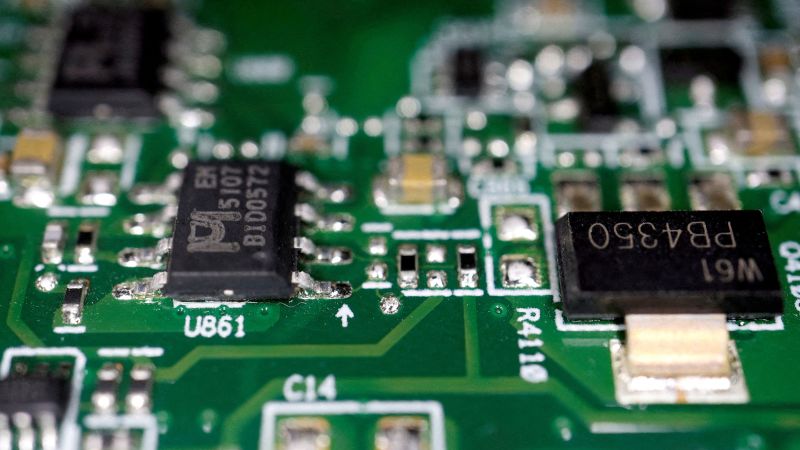President Donald Trump announced plans to impose tariffs of approximately 25% on auto imports, semiconductors, and pharmaceuticals entering the United States as early as April 2. This decision follows his recent implementation of a 10% tariff on goods from China and 25% tariffs on steel and aluminum imports. Speaking at his Mar-a-Lago resort in Florida, Trump indicated that tariffs on semiconductor chips and pharmaceuticals could rise even higher over the course of a year. “It’ll go substantially higher over a course of a year,” he stated, while emphasizing the need to provide companies time to relocate their factories to the U.S. to avoid these tariffs. “We want to give them a little bit of a chance,” he added.
The announcement comes shortly after Trump ordered an investigation into other nations’ tax and tariff policies, which could lead to reciprocal tariffs taking effect as early as April 2. Howard Lutnick, Trump’s nominee for Commerce Secretary, confirmed this timeline last week. The move aligns with Trump’s broader goal of achieving more “balanced” trade with foreign markets and reshoring strategic industries. He has consistently criticized what he perceives as unfair treatment of U.S. exports by other countries.
Economists and industry experts warn that these steep tariffs could have significant repercussions, affecting not only the targeted industries but also consumers through higher prices and businesses through increased costs. The automotive sector, in particular, could see car prices rise by thousands of dollars, given that nearly half of U.S. vehicle sales last year were imports. It remains unclear whether the 25% tariff will apply universally or if vehicles manufactured in Mexico and Canada under a free trade agreement signed during Trump’s first term will be exempt.
In the semiconductor industry, U.S. firms like Nvidia dominate, but manufacturing has largely shifted to Asia due to cost and technical advantages. Taiwan Semiconductor Manufacturing Company (TSMC), the world’s largest contract chip producer, could be significantly impacted by new tariffs. Trump has accused Taiwan of undermining America’s chip industry, though experts dispute this claim. The potential tariffs could also accelerate efforts by Asian chip giants such as TSMC, Samsung, and SK Hynix to establish or expand operations in the U.S.
Regarding pharmaceuticals, the U.S. imported over $176 billion worth of drugs and related goods in 2023, making it the largest importer globally. European, Indian, and Chinese firms may face the greatest challenges, with Ireland accounting for 20.4% of pharmaceutical imports, followed by Germany at 10.8%, Switzerland at 8.6%, India at 6.2%, and China at 3.4%. — news from CNN
